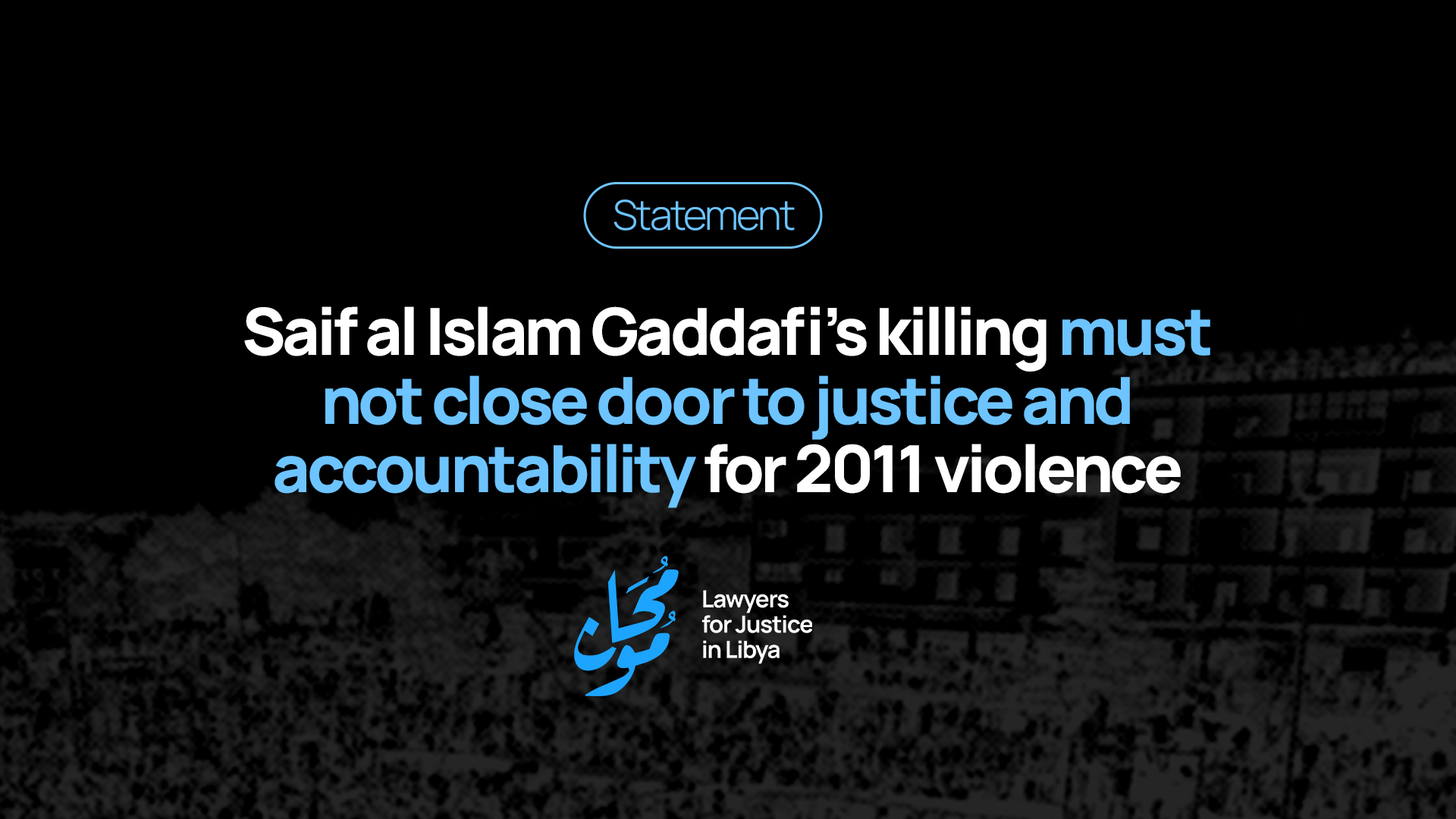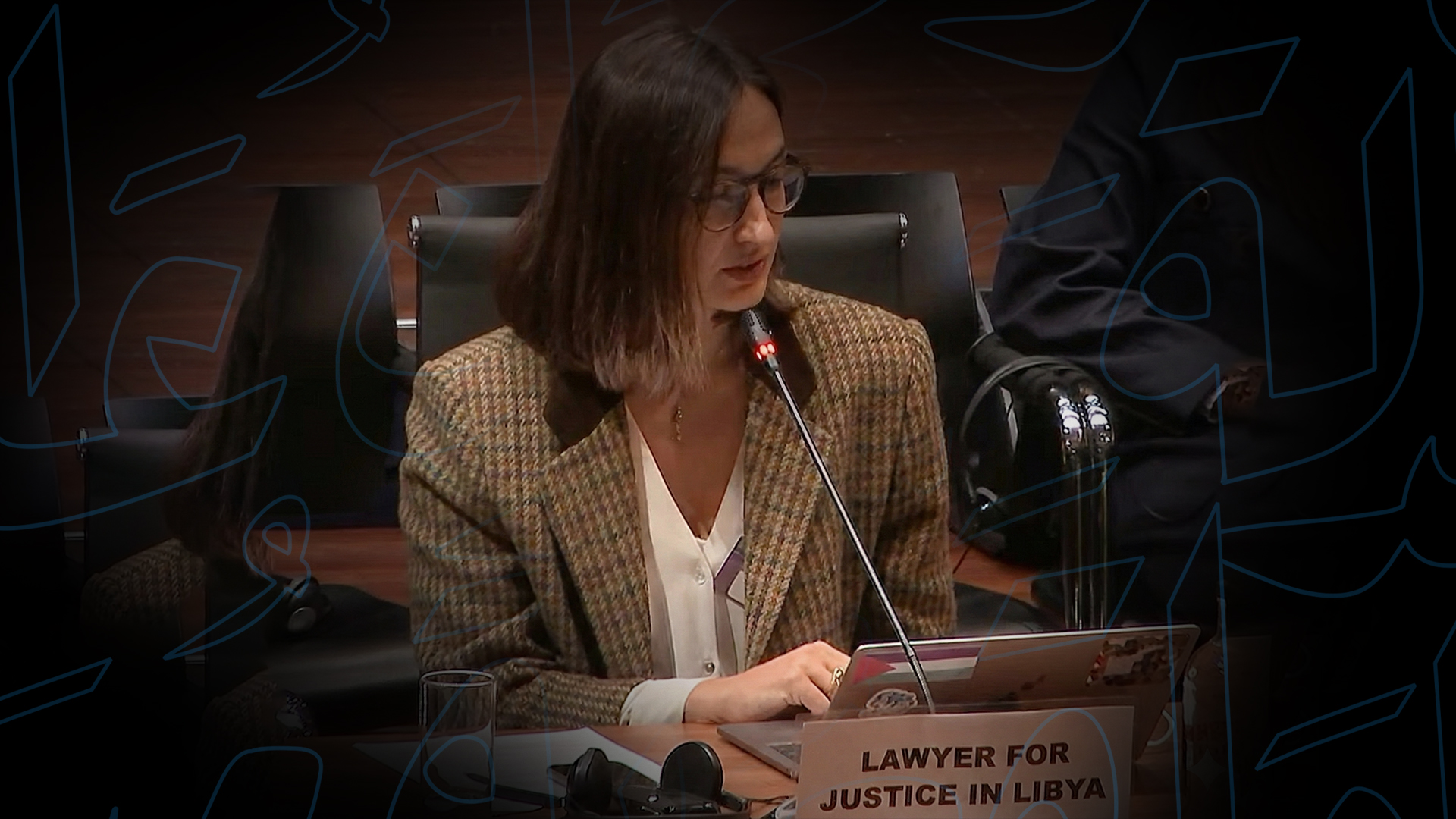Risking Further Impunity in Libya: ICC Arrest Warrants Must Be Enforced and the Court Must Issue New Arrest Warrants for Those Most Responsible for International Crimes
Following the update from the Prosecutor of the International Criminal Court (the ICC or the Court) on the situation in Libya to the United Nations (UN) Security Council (the UNSC), Lawyers for Justice in Libya (LFJL) urges the ICC Prosecutor to issue new arrest warrants against those who perpetrate international crimes. LFJL also calls on both the Libyan authorities and all states to cooperate fully with the ICC including by executing outstanding and future arrest warrants.
On Tuesday, the ICC Prosecutor issued her nineteenth report to the UNSC in which her office noted that investigations into the situation in Libya remain active and that they are not limited to crimes committed in the context of the 2011 uprising. The Prosecutor further confirmed that preparations are being made for new applications for arrest warrants, without indicating relevant suspects. In her address to the UNSC the Prosecutor also highlighted the widespread practice of arbitrary detention of Libyans, refugees and migrants, as well as other serious forms of mistreatment such as murder, torture, rape, and other forms of sexual violence.
“The ICC Prosecutor notes with concern that allegations of serious violations, such as torture and enforced disappearance, are common in the Libyan situation, but only one individual is currently the subject to a public arrest warrant in relation to crimes committed outside the 2011 Libyan uprising,” said Natalie Mazur, LFJL’s Senior Programme Lead on Accountability and Transitional Justice. “As the situation deteriorates in Libya, it is crucial that the ICC Prosecutor takes concrete action to secure new public arrest warrants against those perpetrating international crimes in Libya to combat the prevailing impunity and to deter others from committing crimes,” added Mazur.
The ICC has outstanding arrest warrants against three individuals in the Libyan situation; Saif Al-Islam Gaddafi, Mahmoud Mustafa Al-Werfalli and Al-Tuhamy Mohamed Khaled. Recently, on 9 March 2020, the ICC Appeals Chamber confirmed that the case against Gaddafi remains admissible at the ICC because the 2015 in absentia judgment against him by a Libyan court in Tripoli is not final. In response to Saif Al-Islam Gaddafi’s release from prison after seemingly being granted amnesty, Judge Ibanez Carranza further added in her Separate and Concurring Opinion that “amnesties or similar measures for gross human rights violations are incompatible with the fundamental and inalienable rights to truth, justice and reparations.”
Gaddafi, as well as Al-Werfalli and Khaled, are yet to be arrested and transferred to the ICC. UNSC Resolution 1970 (2011) requires Libyan authorities to cooperate fully with the Court and urges all states to cooperate with the Court and the Prosecutor. “Libyan authorities and other states that fail to cooperate fully with the Court are effectively impeding accountability efforts for war crimes and crimes against humanity,” stressed Nada Kiswanson, LFJL’s Special Litigation Advisor. “The Prosecutor’s identification of the non-execution of arrest warrants for ICC fugitives as its greatest obstacle raises serious questions regarding states’ commitment to justice in Libya. All states must, as a matter of priority, pressure the governments that shield accused persons to hand them over to the Court,” added Kiswanson.
The Prosecutor’s presentation before the UNSC comes just over a year after General Khalifa Haftar launched a military offensive on Tripoli. Since this offensive began on 4 April 2019, the United Nations Support Mission in Libya (UNSMIL) documented at least 284 civilian deaths and 363 injuries. During the past year, LFJL has documented and reported on numerous violations of international law in Libya and called for accountability and the enforcement of UN resolutions on Libya and for foreign states to stop interfering in the conflict.
“Instead of meddling in the conflict, international actors must focus on meeting their international obligations by implementing UN resolutions, enforcing the arms embargo, cooperating fully with the ICC and encouraging a resolution to the conflict that involves holding those responsible for international crimes accountable,” added Mazur. “With domestic courts unable to operate, the ICC is a vital avenue for justice for victims. Consequently, the ICC Prosecutor needs to ensure the prioritisation of the Libyan situation to help end impunity for the grave crimes being committed in the ongoing conflict,” she said.





